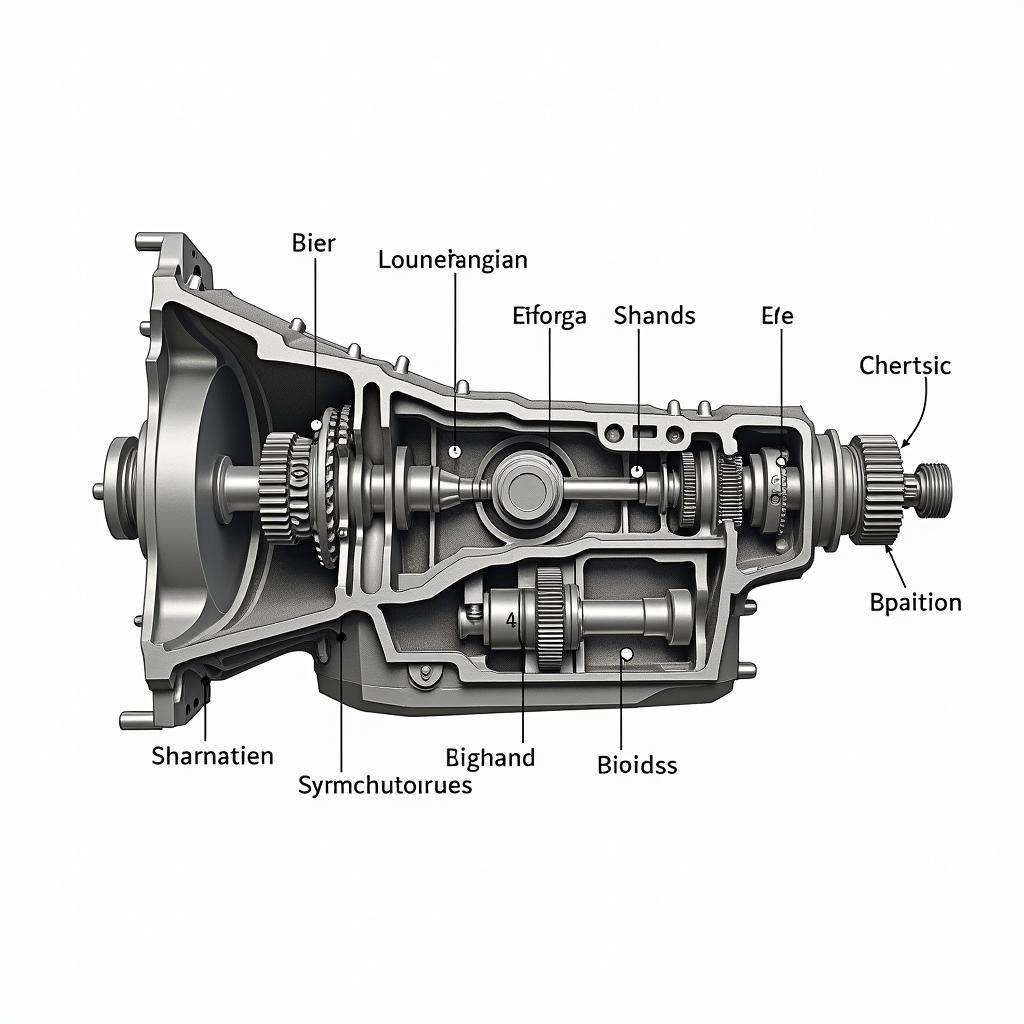Do you sometimes find shifting gears difficult? Are you familiar with the frustrating feeling when the gear lever refuses to engage the desired gear? This article explores the causes of stiff gears and offers practical solutions to fix the problem.
A stiff transmission can have many causes, from simple issues to more complex technical defects. Sometimes it’s due to the clutch, transmission fluid, or worn synchronizer rings. But before we delve into the details, let’s first take a closer look at the significance of the problem.
Why Are Gears Stiff? Meaning and Causes
“Gears are stiff” – this phrase describes a problem many drivers are familiar with. It means that shifting involves increased resistance, and the gear lever does not smoothly slide into the desired gear. This can be more than just annoying; it can indicate serious transmission problems. Symptoms can range from slightly increased effort to complete blockage of the gear lever.
Dr. Karl Heinz Müller, author of “Modern Transmission Technology,” describes the problem this way: “A stiff transmission is often an early warning sign of wear or malfunction. Ignoring this warning sign can lead to costly repairs.”
 Diagram showing the internal structure of a manual car transmission
Diagram showing the internal structure of a manual car transmission
Common Causes of Stiff Gears
There are a number of reasons why gears can become stiff. Here are some of the most common causes:
Clutch Problems
A clutch that isn’t disengaging properly is one of the main causes of stiff gears. If the clutch doesn’t fully disengage, the gears in the transmission continue to spin, making it difficult to engage gears.
Low or Incorrect Transmission Fluid Level
A low transmission fluid level or using the wrong type of fluid can impair the lubrication of transmission components, leading to increased friction and stiff gears.
Worn Synchronizer Rings
Synchronizer rings are responsible for matching the speeds of the gears during shifting. Worn synchronizer rings can cause gears to grind or become stiff.
Damaged Shifter Linkage
A damaged or misadjusted shifter linkage can also cause gears to become stiff.
Solutions and Tips
So, what can you do if your gears are stiff? Here are some potential solutions:
- Check the Clutch: Have the clutch inspected by a mechanic and repaired or replaced if necessary.
- Check and Change Transmission Fluid: Ensure the transmission fluid level is correct and the right type of fluid is used. Regular fluid changes can help prevent problems.
- Inspect and Adjust Shifter Linkage: Have the shifter linkage inspected by a mechanic and adjusted or repaired if necessary.
- Inspect the Transmission: In some cases, stiff gears can indicate a more serious problem requiring transmission repair or replacement.
Prevention and Maintenance
Regular maintenance can help prevent stiff gears. Make sure to change the transmission fluid regularly and have the clutch inspected.
Professor Amelia Schmidt, an expert in automotive engineering, emphasizes: “Preventive maintenance is key to a long-lasting and smoothly functioning transmission. Regular inspections and fluid changes can prevent costly repairs.”
Similar Problems and More Information
Similar problems can also occur with the shifter, clutch pedal, or the transmission itself. You can find more information on these topics at autorepairaid.com. Visit our website for more articles and car repair tips.
Contact Us!
Need further assistance? Our car repair experts are available 24/7. Contact us via WhatsApp at +1 (641) 206-8880 or by email at [email protected]. We are happy to help!
Conclusion: Stiff Gears – No Need to Panic!
Stiff gears can indicate various issues, from a simple adjustment to a more complex defect. However, with the correct diagnosis and appropriate measures, the problem can usually be quickly resolved. Don’t hesitate to seek professional help to avoid more significant damage.

